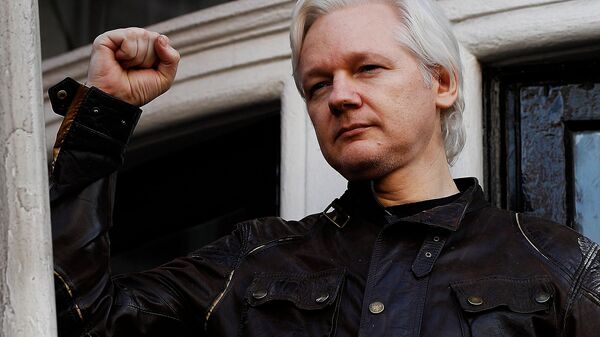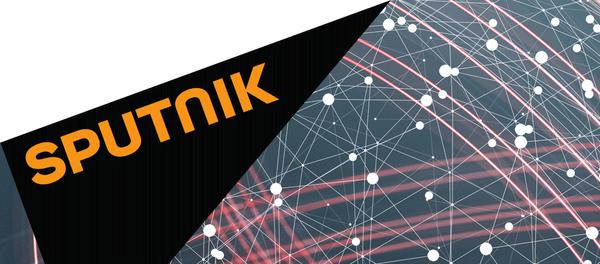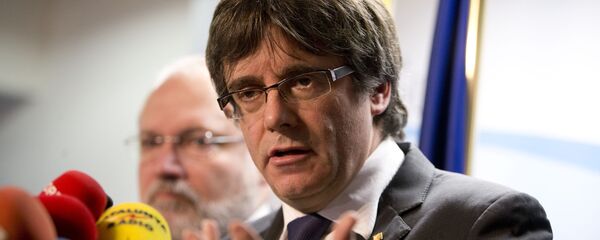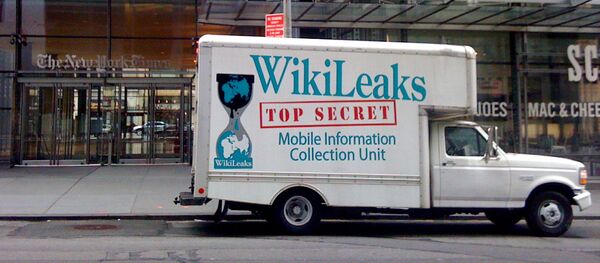On December 19 2017, the House of Commons' Digital, Culture, Media and Sport Committee convened its ‘fake news' inquiry's first oral evidence session, hearing testimony from a number of witnesses.
Among them were David Alandete, Editor of El Pais, Francisco de Borja Lasheras, Director of the European Council on Foreign Relation's Madrid Office, and Mira Milosevich-Juaristi, Senior Fellow for Russia and Euroasia at Elcano Institute.They'd been invited to discuss an alleged Kremlin effort to interfere in the October 2017 Catalan independence referendum via a dastardly nexus of social media, bots, trolls, Sputnik News and RT — and WikiLeaks founder Julian Assange.
What the trio failed to disclose, and are yet to acknowledge publicly almost a year later, is they are both directly and indirectly connected to the Integrity Initiative — an "information war effort" based in London that has received millions in UK government funds and is subject to more than one official investigation into its activities.
Birds of a Cluster
The shadowy organization maintains ‘clusters' — secret networks of politicians, businesspeople, military officials, academics and journalists — the world over who "understand the threat posed to Western nations" by Russian "disinformation" and can be mobilized to influence domestic politics.
The files suggest clusters are operational in France, Germany, Greece, Italy, Lithuania, Montenegro, the Netherlands, Norway, Serbia, Spain and the UK — and there are plans to extend the scheme to every corner of the globe.
Lasheras and Milosevich-Juaristi are both members of Integrity Initiative's Spanish cluster, which according to internal files "draws its participants from academia, the media, civil servants, military and several political parties".
It's unknown whether the "major study" referred to one of the pieces of evidence provided by the Committee — but false information was apparently provided to its inquiry by Alandete, Lasheras and Milosevich-Juaristi, and may have informed the incendiary language of its interim report published in July.
"We heard evidence that showed alleged Russian interference in the Spanish Referendum, in October 2017. During the Referendum campaign, Russia provoked conflict, through a mixture of misleading information and disinformation, between people within Spain, and between Spain and other member states in the EU, and in NATO," the committee wrote.
Setting the Stage
On October 1 2017, the autonomous region of Catalonia convened a referendum on the question of its independence — the Spanish government declared the vote illegal, leading to violent protests and arrests of Catalan politicians and activists, as well as the seizure of ballots and raids on polling stations by authorities. Assange tweeted extensively, condemning the vicious official attacks on peaceful Catalan voters and civic organizations — his postings on the subject would be retweeted thousands of times by his supporters — and supporters of Catalan independence — and found their way into a number of Sputnik News and RT reports on the topic.
Mere days later, El Pais duly began publishing stories alleging Assange was helping Sputnik News and RT to promulgate "fake news" about events in Catalonia. These baseless allegations were echoed in reports issued by a number of organizations with established histories of disseminating anti-Kremlin disinformation, including the Atlantic Council's Digital Forensics Research Lab, and NATO's StratCom, and eventually proliferated to such a degree the dubious notion that online support for Catalan independence was effectively a Russian plot, facilitated — if not led — by Assange became widespread in mainstream Western discourse.
It was El Pais' pivotal initial role in perpetuating this notion that led to Editor Alandete's invitation to the December 19 Committee session — and he brought with him the two individuals who'd provided much of the data his paper's journalists cited supporting their theory of Russian interference in the referendum.
‘Exceptionally Misleading'
Issues with the trio's ‘expert' testimony don't end there. In written evidence submitted to the inquiry by M C McGrath — founding director of Transparency Toolkit, a non-profit organization helping journalists and human rights groups collect, analyze, and understand data online — raises serious questions about their competence and probity.
"I discovered numerous instances of misinterpretation of data sources, use of inaccurate information, lack of attention to detail, and poor research methodology. As a result of these errors, I would suggest that the conclusions drawn in these reports and presented in the December 19 Committee session are exceptionally misleading," she wrote.
I submitted a more detailed report on this research to the UK Parliament's fake news inquiry as well https://t.co/AZCbrRm9q0
— M. C. McGrath (@Shidash) April 20, 2018
Specifically, her review identified; a failure to accurately use digital analytics tools; dubious research methodology; one-sided analysis ignoring botnets disseminating anti-Catalan independence messages; exaggeration of the influence of bots and trolls; careless analysis of data from questionable sources; overstatement of the influence of Assange on RT and Sputnik."Reports such as El Pais'identify a suspiciously large number of tweets about Catalonia from Russian bots and trolls. There is nothing is unusual about the proportion of accounts located in Russia that retweeted Julian Assange's Catalonia-related tweets. A sample of 23,418 retweets of Assange's tweets discussing Catalonia in September and October 2017 shows 2.1 percent in Russia, in line with world population ratios…[it does] not show disproportionate interest in the situation in Catalonia from Russia. In fact, Julian Assange's retweeters appear to be concentrated in the US," she observed.
Even more damningly, McGrath found Sputnik and RT only mentioned Assange in a small minority of their stories about Catalonia. Using Media Cloud, a tool created by researchers at MIT and Harvard for tracking the spread of news stories and ideas, she analyzed the two outlets' coverage of the situation in Catalonia between September 1 and December 8 2017, during which the pair published 596 stories about Catalonia."In these stories, 2,998 sentences mention Catalonia specifically. Only 17 of these 596 stories about Catalonia, or 2.85 percent, also mention Assange. Furthermore, analysis of sentences mentioning Assange shows references were centered around a few isolated events and comments. A sample of 53,929 retweets of 1,508 Catalonia-related tweets posted in September and October 2017 by RT and Sputnik's English and Spanish Twitter accounts shows only 22 of the 1508 tweets (1.46 percent) mention Assange at all….2.86 percent of retweets of tweets from RT and Sputnik about Catalonia mention Assange,"she concluded.
Birds of a Cluster
It's uncertain whether the trio deliberately misled the committee, but misled the panel certainly were — and these falsehoods could have seismic real-world consequences.
For instance, the committee's apparent endorsement of the trio's contention that an individual or group being quoted by Sputnik and/or RT is evidence they are assisting in — if not leading — a Russian disinformation campaign, hands potentially significant ammunition to anyone wishing to discredit or delegitimize critical voices in mainstream discourse.
If laws do materialise, they will at least in-part be inspired by unsound analysis that, whether consciously or unconsciously, is not based on facts or evidence — and an organization which claims to "defend democracy from disinformation" could arguably be culpable. Furthermore, it wouldn't be the first time individuals associated with the Integrity Initiative's Spanish cluster have influenced domestic policy — leaked internal Institute files boast of the success of 'Operation Moncloa', an effort to block the appointment of Pedro Banos, an army reservist and author the Spanish Socialist party wanted to make the country's Director of National Security.
When Banos' candidacy was announced, members of the Spanish cluster — including Gonzalez Ponz, spokesperson of the Partido Popular in the European parliament, and Nacho Torreblanco, director of the European Council for Foreign Relations Office in Madrid — colluded via WhatsApp to flood social networks with anti-Banos messages, and provide the Spanish media with a 'dossier' of negative material on the former head of counterintelligence and security for the European army. The Initiative's UK cluster supported their work — within 24-hours, the planned appointment was dropped. One wonders how else — and where else — the Institute for Integrity has had such a disruptive effect on domestic politics.
Committee Chair Damian Lewis has been asked for comment by Sputnik, but as of December 14 is yet to respond.








